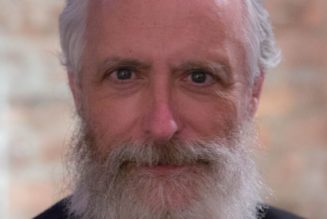|
Listen to this story: |
ROME – A Catholic academic participating in a Rome conference this week, which intentionally rivals one held by the Pontifical Academy for Life earlier this year, has voiced concern over the body’s recent activities, saying he believes they are “embarrassing” the church by failing to uphold core moral teachings.
“As a father and as a Catholic intellectual, I’m really concerned about what the Pontifical Academy for Life is and the picture of the Church that it’s portraying to the world,” said Fulvio Di Blasi, an Italian lawyer and expert in ethics and St. Thomas Aquinas.


“It’s embarrassing,” he told Crux, saying, “It looks like, sometimes, the entire work of some people in the church is to justify homosexual sex, which is really ugly. I say ‘ugly’ because in classical ethics, good and beautiful go together, so there is an attraction to what is good.”
He also criticized what he described as a lack of advocacy from the Academy for Life on abortion, saying the academy “doesn’t look like they care much about it.”

To this end, he criticized the stance taken on COVID vaccines and the recent appointment of economist Mariana Mazzucato, a self-described atheist whose pro-choice views on abortion are well documented, as a member of the academy, saying the appointment is a “total confusion” for Catholics.
He also condemned what he said are efforts by some theologians to legitimize practices such as contraception, homosexual relations, and in vitro fertilization, and to change “the paradigm of moral theology,” calling this “embarrassing” and saying the academy for life is “not adult enough” to stand up for the value of the Church’s position on these issues.
“At least during this conference, we can show these prelates, these pastors, these people in the Pontifical Academy, that there are in the church mature people who do have more important things to do, but they are trying to spend some time to fix this debate so we can move forward,” he said.

Di Blasi’s academic record includes teaching positions at several top Catholic universities, including Notre Dame, the John Paul II Catholic University of Lublin in Poland, the Pontifical University of the Holy Cross in Rome, and LUMSA university in Palermo. He was also called as a witness before Italy’s Constitutional Court on the ethics of vaccine mandates during the coronavirus pandemic.
He is among the thinkers, academics and theologians participating in a Dec. 8-10 conference organized by the International Catholic Jurists Forum (ICJF) in Rome on the topic, “A Response to the Pontifical Academy for Life’s Publication: Etica teologica della Vita: Scrittua, tradizione, sfide, pratiche.”
The conference is being co-sponsored by Ave Maria University, the Ave Maria School of Law, and the Ethics and Public Policy Center, all based in the United States. Many participants declined to speak to the press.
Etica teologica della Vita: Scrittua, tradizione, sfide, pratiche, meaning “Theological Ethics of Life: Scripture, Tradition, Challenges, and Practice,” is the title of a volume published by the Pontifical Academy for Life (PAV) in July, and is a summary of discussions held in a previous meeting of academy members and experts.
After its publication the text sparked widespread debate over the inclusion of papers from some theologians arguing for a distinction between moral norms, such as the ban on birth control, and the concrete pastoral application of those norms, with some theologians appearing to suggest that in certain circumstances, couples could be justified in choosing artificial contraception or methods of artificial reproduction.
Critics argued that it was inappropriate for a Vatican body to publish voices questioning the church’s core moral teachings, while the academy defended the volume, saying it is the duty of a pontifical academy to facilitate dialogue among experts of differing opinions.
Di Blasi in his comments to Crux said he did not believe such dialogue is helpful because “it’s not just an individual scholar, it’s a publication from a pontifical institute, so it does have some kind of authoritative standpoint, and that’s how everybody took it.”
He said the academy’s publication also contradicts Pope John Paul II’s 1993 encyclical Veritatis Splendor on the church’s role in moral teaching, saying, “This is already a dissent, which is not allowed in Catholic theology, so it’s already something ‘off the line.’
Since the publication of Etica teologica della Vita, the academy has also come under fire for tweets it sent from its official Twitter account in August suggesting that St. Pope Paul VI’s 1968 encyclical Humanae Vitae – which reinforced church teaching on marriage and upheld its condemnation of artificial contraception – was not covered by the doctrine of papal infallibility, meaning it can be subject to change.
Di Blasi admitted that the ICJF conference was intended, at least in part, to pressure the Pontifical Academy for Life over the status of Humanae Vitae, voicing his belief that “there’s a clear strategy to overturn the previous magisterium.”
“I know how these things work, and unfortunately, I took part in some meetings in which some people were talking about things in this way. It’s a strategy, step-by-step, they want to reach a goal, and the goal is to make these things morally good,” he said, referring to the use of contraception, artificial reproduction, and homosexuality.
What has happened over the past few months, he said, is “pretty bad” and indicates “that we are beyond dissent. This is a conspiracy. They really want to achieve that goal.”
He accused the Pontifical Academy for Life of “abusing their status” in order to “do something against the church,” saying there is a need right now “to show the muscles of the Catholic Church so we are able to react.”
In comments to Crux, Fabrizio Mastrofini, a spokesman for the Pontifical Academy for Life, said they are happy that their document Etica Teologica della Vita has initiated a process of “study and reflection” by experts on key topics covered in the book.
“The primary purpose of a pontifical academy like ours is to produce a theological debate, presenting contributions that the magisterium will evaluate,” he said, saying the academy conference Etica Teologica della Vita is based on includes “very different voices, as can be seen by scrolling through the various contributions.”
“In this sense, a discussion in these days in Rome would have been desirable,” he said. “However, the Pontifical Academy for Life is available and grateful for all opportunities for respectful and frank debate on these issues.”
Di Blasi said he and conference organizer Jane Adolphe, a lawyer and professor of Law at Ave Maria School of Law with experience within the Holy See, are planning to publish the contents of this week’s ICJF conference as “a response” and “a counter-document” to Etica Teologica della Vita.
Each of the speakers and experts are engaging “from our own perspective as scholars,” Di Blasi said, “but I hope it will be more than that, I hope it will be a good book to review the beauty and the depth of our Catholic faith.”
“Somehow in history, we know that theologically God allows evil only for a greater good, so maybe the greater good of the book by the Pontifical Academy for Life is to have other, better publications, that go back to a deeper truth. Maybe this won’t just be about them, maybe it will be about having good resources for Catholic people today,” he said.
Follow Elise Ann Allen on Twitter: @eliseannallen
Join Our Telegram Group : Salvation & Prosperity





